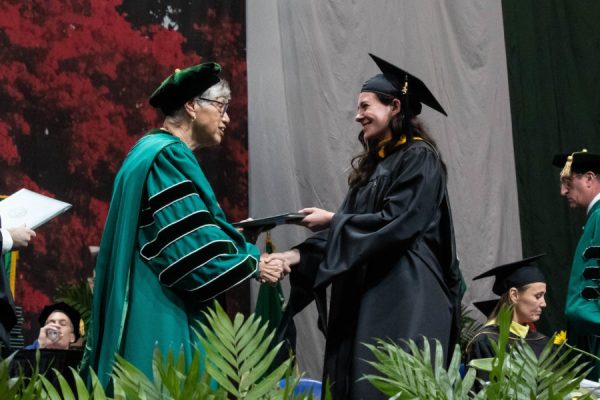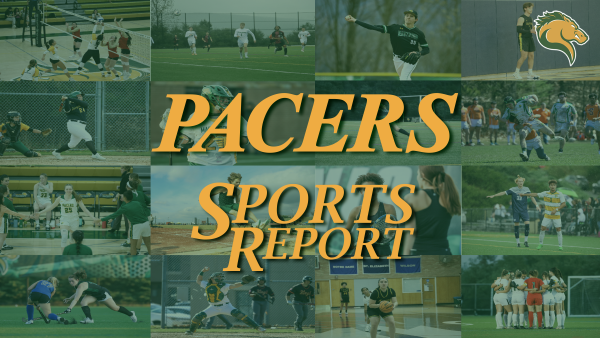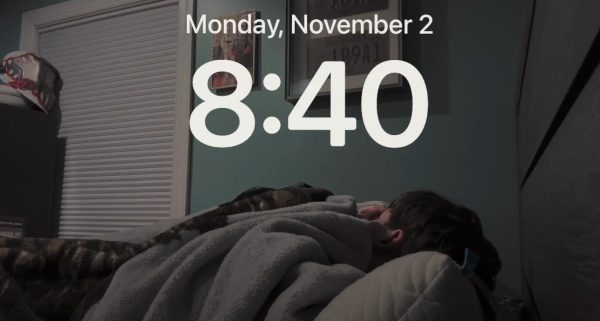Marywood faculty petition NLRB for union vote
September 23, 2016
Marywood faculty haven’t given up on a union vote yet.
The Wood Word recently interviewed Paul Shemansky, regional advocacy coordinator for the Pennsylvania State Education Association (PSEA), for an explanation of a petition filed by PSEA and the Marywood University Faculty Association (MUFA) in August.
That petition, according to an Aug. 12 press release from PSEA, was filed with with the National Labor Relations Board (NLRB) Region 4, seeking to overturn a decision made last spring denying Marywood faculty the right to hold a union election. Harold Maier, the NLRB regional director in Philadelphia, had ruled that Marywood faculty members had management roles, making them ineligible to unionize.
Shemansky said that Maier erred in his finding that Marywood faculty members have management roles. Shemansky said he doesn’t believe this is accurate. He added that the outcome of the case “could have a major impact on private college faculty being able to unionize” if it were to be decided in Federal Court.
He referenced the 2014 Pacific Lutheran University case, which determined that there are five key areas to decide if faculty members serve managerial roles or act as solely employees.
These five areas are broken into three primary categories, which include academic programs, enrollment management and finance and two secondary categories, which include academic policy and personnel policy.
According to Shemansky, Maier only looked at the first primary category, academic programs, to determine that Marywood faculty serve as managers. He said a lot of regional directors are “picking and choosing” the areas they refer to in cases involving managerial roles.
Shemansky said Maier believed Marywood University showed enough evidence that the faculty have a lot of power to determine academic programs. The PSEA disagrees with this decision, leading to the recent petition, which requests a review of this case at the NLRB in Washington D.C.
“We requested that they review the Regional 4 director’s decision,” said Shemansky. “We said … we have enough evidence to say … that was the wrong decision.”
Shemansky said the request to review the case won’t establish a faculty union at Marywood, but only permit faculty to hold an election to vote if the majority want to unionize. He explained that regardless of the outcome of an election, MUFA deserve to at least have a vote.
“It’s a democratic decision. It’s like the election in November,” said Shemansky. “The people will determine their future. They [MUFA] just want the opportunity to vote on their future and Marywood is denying that.”
If the NLRB determines Marywood can have an election, they will select a time and date for the election where Marywood faculty members can vote.
“But we can’t even get to that [an election] until all these other legal hurdles are taken care of,” said Shemansky.
According to Shemansky, Marywood is paying legal fees to stop this case from moving forward.
“[The University] could put their resources, their spending on fighting this somewhere more productive — in their academics of the college,” said Shemansky.
Once the NLRB makes a decision, either supporting the ruling of the regional director or deciding to review the evidence from this case, the party who loses this case could decide to move it to the federal courts, according to Shemansky.
Shemansky added that, in theory, this case could make it up to the Supreme Court.
“We’re really hopeful the NLRB in Washington will take this case up in the fall and look at it and make a decision,” he said.
Contact the writer: [email protected]
Twitter: @RLookerTWW















